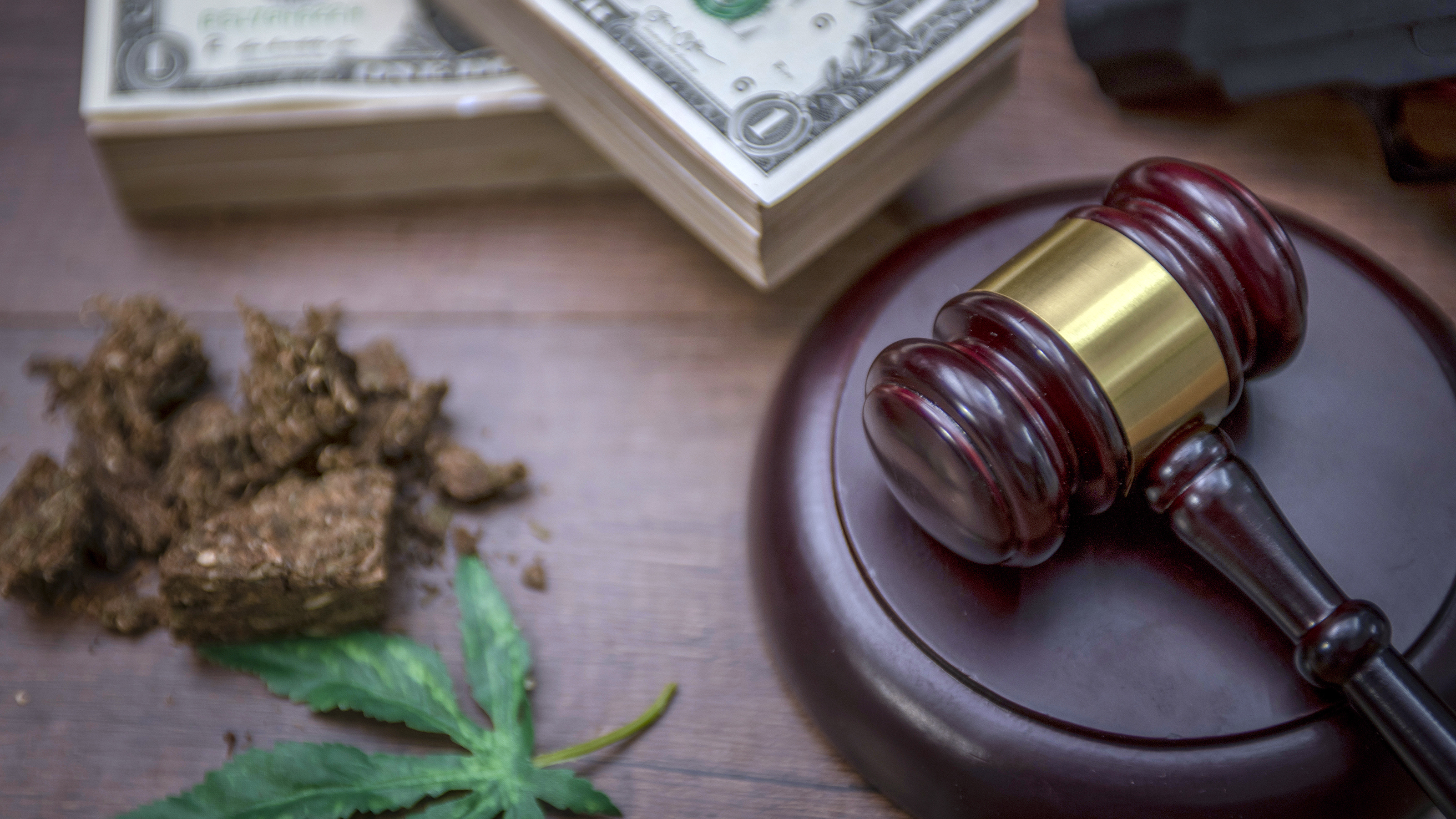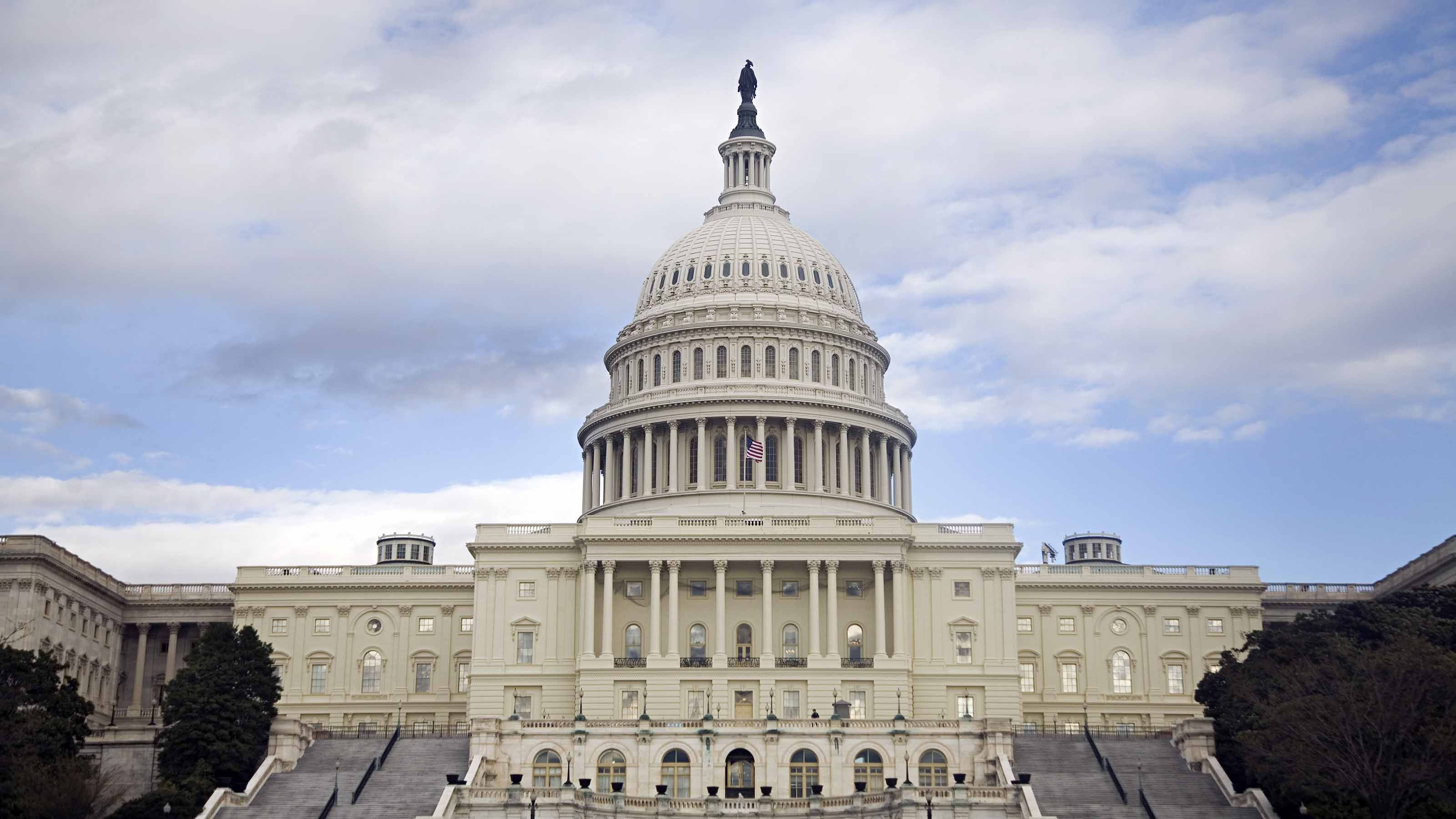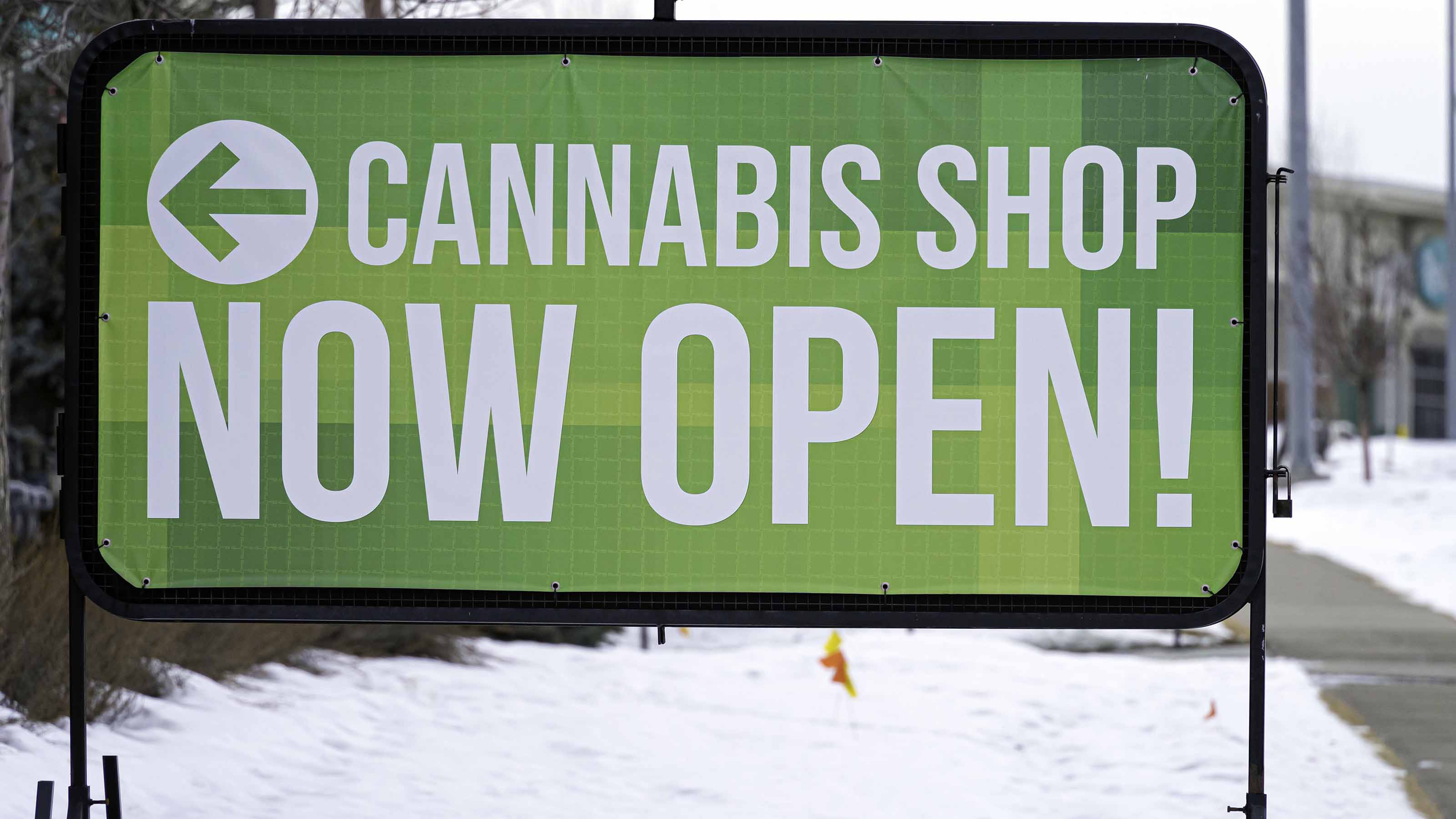Lawmakers Delay SAFE Banking Act: This Week in Cannabis Investing
The SAFE Banking Act is at risk of not passing during the lame-duck session in Congress, sparking volatility in marijuana stocks.


Profit and prosper with the best of Kiplinger's advice on investing, taxes, retirement, personal finance and much more. Delivered daily. Enter your email in the box and click Sign Me Up.
You are now subscribed
Your newsletter sign-up was successful
Want to add more newsletters?

Delivered daily
Kiplinger Today
Profit and prosper with the best of Kiplinger's advice on investing, taxes, retirement, personal finance and much more delivered daily. Smart money moves start here.

Sent five days a week
Kiplinger A Step Ahead
Get practical help to make better financial decisions in your everyday life, from spending to savings on top deals.

Delivered daily
Kiplinger Closing Bell
Get today's biggest financial and investing headlines delivered to your inbox every day the U.S. stock market is open.

Sent twice a week
Kiplinger Adviser Intel
Financial pros across the country share best practices and fresh tactics to preserve and grow your wealth.

Delivered weekly
Kiplinger Tax Tips
Trim your federal and state tax bills with practical tax-planning and tax-cutting strategies.

Sent twice a week
Kiplinger Retirement Tips
Your twice-a-week guide to planning and enjoying a financially secure and richly rewarding retirement

Sent bimonthly.
Kiplinger Adviser Angle
Insights for advisers, wealth managers and other financial professionals.

Sent twice a week
Kiplinger Investing Weekly
Your twice-a-week roundup of promising stocks, funds, companies and industries you should consider, ones you should avoid, and why.

Sent weekly for six weeks
Kiplinger Invest for Retirement
Your step-by-step six-part series on how to invest for retirement, from devising a successful strategy to exactly which investments to choose.
This week, cannabis industry advocates were closely watching to see if the National Defense Authorization Act (NDAA) would be used as a vehicle to advance legislation on cannabis banking reforms such as the Safe Banking Act or Safe Plus.
This pathway seems all but closed after legacy remarks from Republican Senator Mitch McConnellof Kentucky came back to the surface. Committee consideration of the large-scale defense bill was delayed amid disagreements among House lawmakers over several key issues. At the same time, several senior GOP senators filed concerns with the Department of Justice about the possibility of cannabis banking reforms.
In this column, we've indicated for several weeks that the current lame-duck session is the best chance for D.C. to pass federal banking reform via either SAFE or SAFE Plus. However, the winds of The District's power circles shift quickly. Even as the odds are the best we have seen for cannabis, there are still so many other factors at work. The cannabis industry needs ongoing political initiatives, "horse trading" and other factors to fall in its favor. This year the cannabis industry has made real progress in D.C., and it would be a shame to see a repeat of last year when SAFE was removed from the legislation. There are other pathways to cannabis banking reform, and we will see what possibilities materialize next outside of the NDAA.
From just $107.88 $24.99 for Kiplinger Personal Finance
Become a smarter, better informed investor. Subscribe from just $107.88 $24.99, plus get up to 4 Special Issues

Sign up for Kiplinger’s Free Newsletters
Profit and prosper with the best of expert advice on investing, taxes, retirement, personal finance and more - straight to your e-mail.
Profit and prosper with the best of expert advice - straight to your e-mail.
Cannabis Stocks Rise on Reform Hopes
U.S. cannabis operators and cannabis exchange-traded funds (ETFs) made gains with the growing anticipation of federal reform. In terms of marijuana stocks, Green Thumb Industries (GTBIF), Curaleaf Holdings (CURLF), Trulieve Cannabis (TCNNF), Cresco Labs (CRLBF) and subsequent ETFs with those as primary holdings were each up as of Monday morning.
Those gains have retraced after it seems clear that SAFE was removed from the NDAA. Continued efforts from Senate Majority Leader Chuck Schumer (D-New York) continued efforts to pass two cannabis bills – the SAFE Banking Act and the HOPE Act – before the holidays provided a brief boost in the marketplace, similar to other recent news on federal reforms.
This new potential direction would be a welcome change after a brutal, almost two-year-long bear market for cannabis. The moves off the 52-week lows had been impressive in percentage gains. We saw another reversal mid-week as investors and traders quickly sold.
This political theater is likely going to continue for a few more weeks, which is wearing thin on cannabis public market sentiment and there is risk of increased volatility until there is clarity. When former Attorney General Jeff Sessions rescinded the Cole Memo, the only existing federal guidelines for cannabis, capital markets were heavily impacted and saw limited trading access, custody, participation, and more.
Each time we get close to federal reform, stocks rise as the market wants to see this change and the potential benefits gained. Many large operators have mostly found ways around banking issues, but getting cash into the banking system, removing capital market restrictions and the ability for stocks to list on major exchanges could produce a big lift for the industry.
The End of Cashless ATM Payments at Dispensaries
There has been a wave of cashless ATM crackdowns on the doorstep of potential federal banking reform. Cashless ATMs allowed consumers to use a debit card at dispensaries instead of cash. The payment method mimics a typical ATM exchange to get around the federal illegality of cannabis transactions. This year, nearly $7 billion was moved past the usual money-laundering controls of the U.S. banking system. We understand this cleanup has been underway for a while, but so has the progression of federal banking reform.
Previously, it was very common for providers to have ATMs onsite and set up payments via debit at cannabis retailers. ATMs were a revenue source for both the providers and the retailers and a means of offering a more normalized customer experience since traditional credit card transactions were unavailable. The cashless ATM payment method has been turned off for now and possibly for good.
We expect a short-term disruption for retailers, as it is estimated that 25% of transactions in the $26 billion U.S. industry, per Headset data, were done this way. Assuming federal reform passes, there will likely be a gap in time before traditional payment platforms for Visa (V) or Mastercard (MA) can participate in cannabis. If federal banking reform does end up passing in the lame-duck session, major financial institutions may begin participating in cannabis by Q2 next year. Otherwise, the onus remains on the industry to navigate forward as we have been doing all along.
President Biden Signs Medical Marijuana Research Expansion Act
The final months of 2022 have been historic for the continued progress of U.S. cannabis. President Joe Biden has signed the Medical Marijuana and Cannabidiol Research Expansion Act, marking the first time an American president has signed cannabis-specific reform legislation into law. The bill makes it easier for researchers to study the plant and calls for the federal government to look into the potential therapeutic benefits of cannabis with a rescheduling review in mind.
We were excited to see this bill work its way through the House and quickly through the Senate because it was a simple piece of legislation. Simple seems to work in D.C. when you have bipartisan support. Many in the industry want to see more, but this is a great starting point for increasing the U.S. government's understanding of the plant. This could be one of the most underappreciated gains our industry has seen, and we expect its importance to gain attention in the years to come.
Profit and prosper with the best of Kiplinger's advice on investing, taxes, retirement, personal finance and much more. Delivered daily. Enter your email in the box and click Sign Me Up.

Morgan Paxhia is Managing Director and Co-Founder of Poseidon Investment Management. With over 10 years experience in investing and finance, Morgan has developed a deep understanding of individual company analysis, portfolio construction, and risk mitigation. This content is not intended to provide any investment, financial, legal, regulatory, accounting, tax or similar advice, and nothing should be construed as a recommendation by Poseidon Investment Management, LLC, its affiliates, or any third party, to acquire or dispose of any investment or security, or to engage in any investment strategy or transaction. An investment in any strategy involves a high degree of risk and there is always the possibility of loss, including the loss of principal. This content should not be considered as an offer or solicitation to purchase or sell securities or other services. Any of the securities identified and described herein are for illustrative purposes only. Their selection was based upon nonperformance-based objective criteria. The content presented is believed to be factual and up-to-date, but we do not guarantee its accuracy and it should not be regarded as a complete analysis of the subjects discussed. Past performance is not indicative of future results.
-
 Quiz: Do You Know How to Avoid the "Medigap Trap?"
Quiz: Do You Know How to Avoid the "Medigap Trap?"Quiz Test your basic knowledge of the "Medigap Trap" in our quick quiz.
-
 5 Top Tax-Efficient Mutual Funds for Smarter Investing
5 Top Tax-Efficient Mutual Funds for Smarter InvestingMutual funds are many things, but "tax-friendly" usually isn't one of them. These are the exceptions.
-
 AI Sparks Existential Crisis for Software Stocks
AI Sparks Existential Crisis for Software StocksThe Kiplinger Letter Fears that SaaS subscription software could be rendered obsolete by artificial intelligence make investors jittery.
-
 Will Cannabis Be Impacted By Kevin McCarthy's Ouster?: This Week in Cannabis Investing
Will Cannabis Be Impacted By Kevin McCarthy's Ouster?: This Week in Cannabis InvestingA cannabis banking bill could feel the reverberations from the removal of McCarthy as speaker of the House.
-
 Green Thumb Industries is a Cannabis Cash Cow: This Week in Cannabis Investing
Green Thumb Industries is a Cannabis Cash Cow: This Week in Cannabis InvestingGreen Thumb Industries reported solid cash flow generation in the first quarter despite continued price compression.
-
 SAFE Banking Act Gets New Life: This Week in Cannabis Investing
SAFE Banking Act Gets New Life: This Week in Cannabis InvestingA bipartisan effort has given the SAFE Banking Act, which helps improve cannabis companies' access to finance, a shot to reach the Senate floor.
-
 Missouri's Recreational Weed Market Faces Product Shortage: This Week in Cannabis Investing
Missouri's Recreational Weed Market Faces Product Shortage: This Week in Cannabis InvestingThe Show Me State's recreational weed market has been red hot, but now demand is exceeding supply.
-
 Delta-8 Restricted in Kentucky: This Week in Cannabis Investing
Delta-8 Restricted in Kentucky: This Week in Cannabis InvestingKentucky lawmakers passed a bipartisan bill to regulate Delta-8 THC, a psychoactive cannabinoid.
-
 Delta-8 THCO and Delta-9 THCO Classified as Schedule I Drugs: This Week in Cannabis Investing
Delta-8 THCO and Delta-9 THCO Classified as Schedule I Drugs: This Week in Cannabis InvestingThe Drug Enforcement Agency said delta cannabinoids, including Delta-8 THCO and Delta-9 THCO, are synthetically derived from hemp, and, therefore, are not considered hemp.
-
 Marijuana Legalization Efforts Gain Traction: This Week in Cannabis Investing
Marijuana Legalization Efforts Gain Traction: This Week in Cannabis InvestingMarijuana Legalization Efforts Gain Traction: This Week in Cannabis Investing
-
 Jay-Z and TPCO Restructure Partnership: This Week in Cannabis Investing
Jay-Z and TPCO Restructure Partnership: This Week in Cannabis InvestingConsumer-focused cannabis company TPCO will see significant cost savings thanks to a new deal with Chief Visionary Officer Jay-Z.